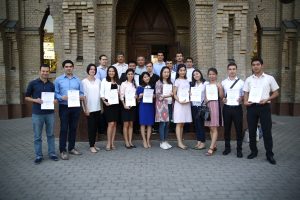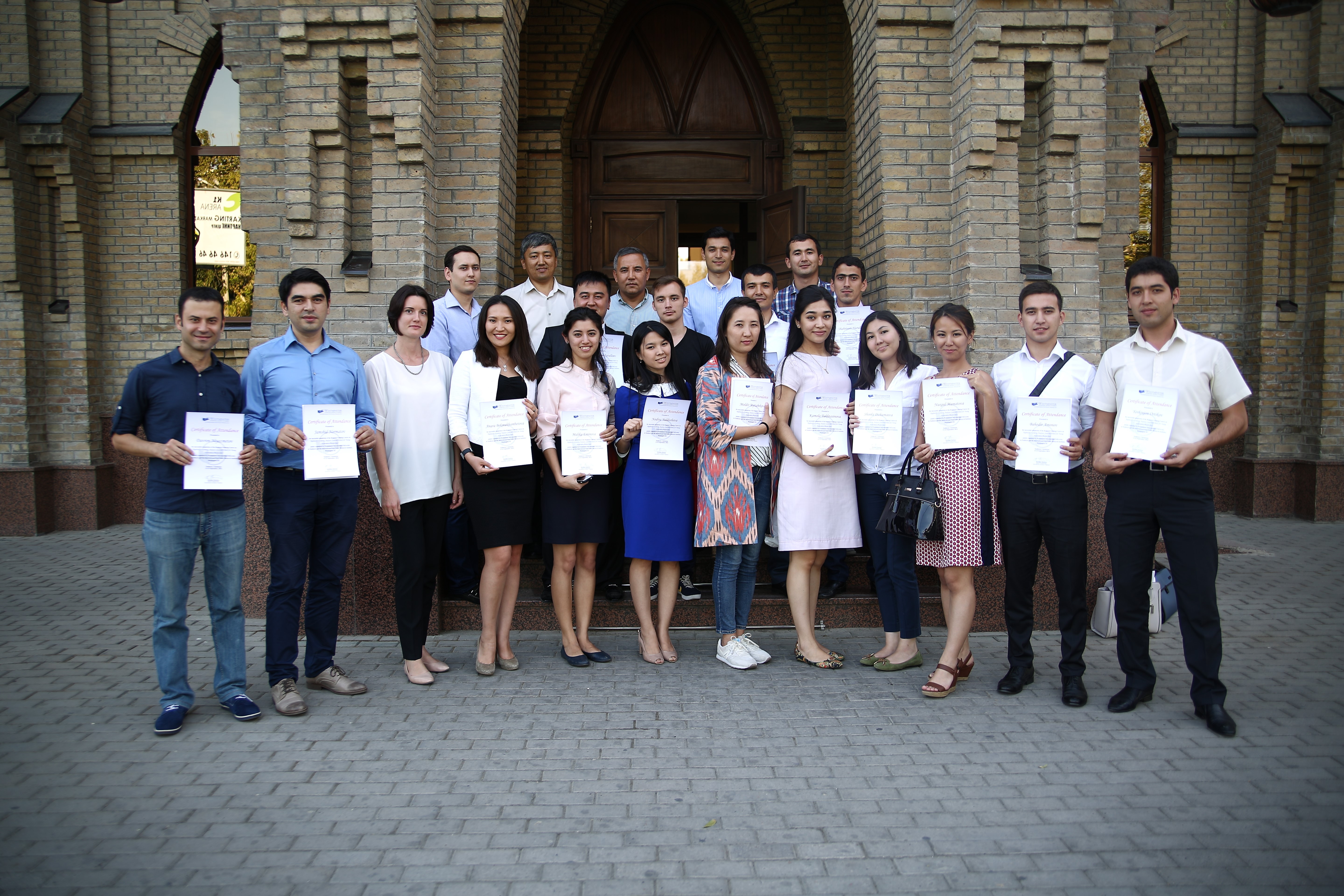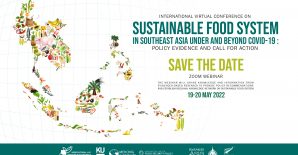The International Food Policy Research Institute (IFPRI) in collaboration with its partner institution based in Central Asia - Westminster International University in Tashkent (WIUT) - held a Training Course on Advanced Applied Econometrics from September 13 – 23, 2016, for the third consecutive year. This two-week training course for young researchers from the region took place at WIUT in Tashkent, Uzbekistan. Twenty participants from Kazakhstan, Kyrgyzstan, Tajikistan, and Uzbekistan participated in the training. Participants were selected on a competitive basis based on their interest and background in applied research, as well as their knowledge and skill level in quantitative methods.
The aim of the training was to strengthen the capacity of young researchers in Central Asia in quantitative research, economic policy analysis, and, econometric analysis. The program covered mathematical foundations emphasis of econometrics and using applied econometric analysis to identify causal relationships. In particular, participants of the training course were acquainted with:
- How to identify and develop research questions, important aspects of writing scientific papers and the process of publishing research results in international peer-reviewed journals;

Dr. Ziyodullo Parpiev, Deputy Dean at WIUT (second from top left) and Dr. Kamiljon Akramov, Research Fellow and Leader of Central Asia Program at IFPRI (third from top left), with participants of the training
- Methods of empirical data analysis and building robust econometric models;
- Methods of detecting causality in cross-sectional and panel data and identification strategies, addressing endogeneity and heterogeneity problems;
- How to interpret analytically the results of empirical research.
The detailed program with links to presentations is available here.
This capacity strengthening initiative was motivated by the increasing interest of young researchers with diverse disciplinary backgrounds in applied econometrics and the strong positive feedback from participants has encouraged organizers to pool resources for continued efforts. “I was impressed by the environment of the training course. I really liked the experience to learn more about econometrics, probability and especially Stata” suggested one participant.
The training course is part of a joint effort to enhance economic analytical capacities among researchers in Central Asia and is supported by the Ministry of Finance of Russian Federation, CGIAR Research Programs on Policies, Institutions, and Markets (PIM) and Agriculture for Nutrition and Health (A4NH). The organizers of this important capacity strengthening activity are planning to offer this training course in 2017.



